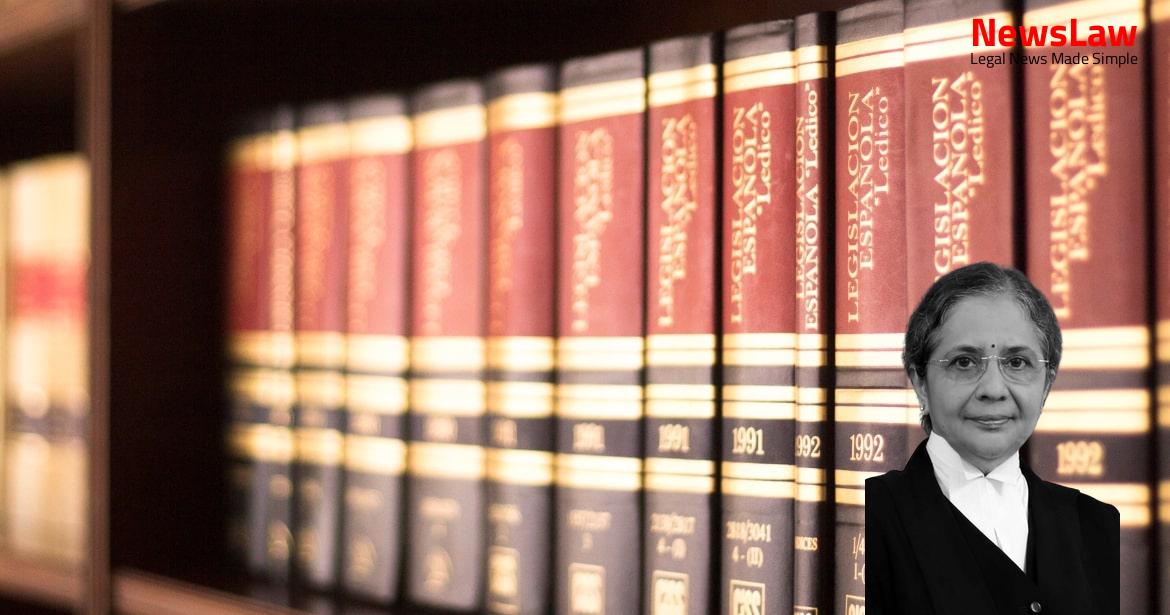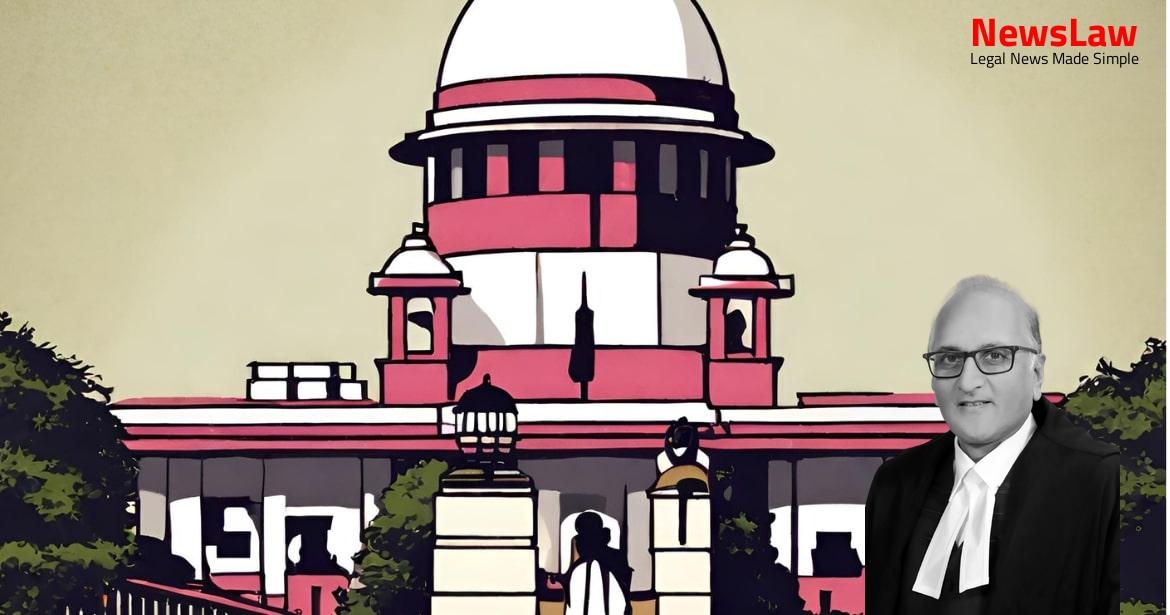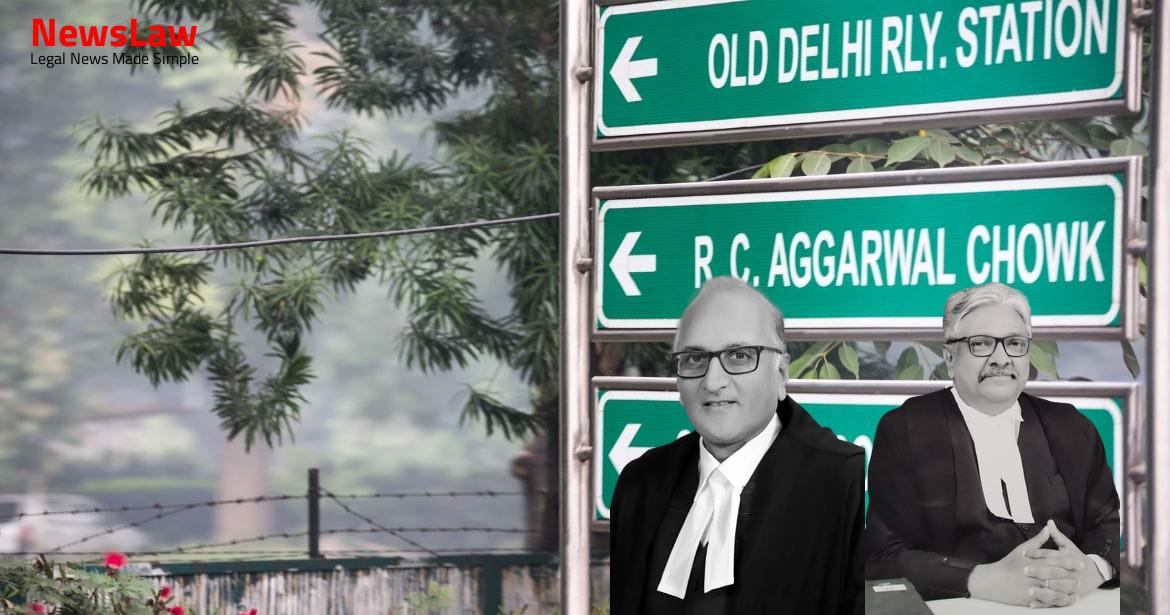In a significant ruling by the Supreme Court of India, a verdict was pronounced in the Land Dispute Impleadment Case involving Sundaram and Ahmadi. The case pertained to a contentious issue regarding the ownership of land and the rights of parties involved. The Court’s decision has far-reaching consequences in clarifying the principles of impleadment in cases of disputed property ownership. Let’s delve into the details of this crucial legal battle.
Facts
- Plaintiffs filed Suit No 1 of 2018 against the Defendants and Respondent No 21 seeking permanent injunction and declaration of nullity of Release Deeds and sale deed.
- After notice in the Underlying Suit, Respondent No 21 executed the RSD in favor of the Appellant during the pendency of the case.
- Temporary injunction was granted in favor of the Plaintiffs on 25.01.2019.
- Appellant and other purchasers filed an application for impleadment which was dismissed by ADJ citing lack of court permission prior to sale and lack of bona fide purchaser status.
- Appellant approached the High Court under Article 227 challenging the ADJ’s order.
- RSD explicitly declared pending cases in the Court of Ld. SDM and Ld. ADJ, Hindaun City concerning the Subject Land.
- Subject Land originally belonged to the Plaintiffs and was released to the Defendants through Release Deeds.
- The High Court of Judicature for Rajasthan dismissed the writ petition filed by the Appellant under Article 227 of the Constitution of India.
- The Appellant was aggrieved by the rejection of his impleadment application under Order 1 Rule 10, CPC by the ADJ.
- The Appellant, along with other parties, bought farming land in Hinduan City, Rajasthan through a registered sale deed dated 28.09.2018.
Also Read: Colonel vs. Teacher: Custody Battle for the Minor Children
Arguments
- Mr. Sundaram asserts that there is no bar to the impleadment of a transferee pendente lite, even when the transferee has prior knowledge of pendency.
- Mr. Ahmadi argues that due to bounced cheques rendering consideration unpaid, no permission was sought from the Court to execute the RSD, hence the Appellant is not entitled to relief.
- Reliance is placed on Bibi Zubaida case where transferees pendente lite cannot seek impleadment as a matter of right.
- Mr. Shukla contends that the Thomson Press case is distinguishable from the present matter as the title of the Appellant is in question, and the Appellant is not in possession of the Subject Land.
- Mr. Huzefa Ahmadi states that the Appellant cannot seek impleadment as he is not a purchaser of the Subject Land.
- Referring to the Thomson Press vs Nanak Builders case, it is argued that the impleadment of a transferee pendente lite is permitted under certain circumstances.
- Highlighting that the RSD contains clauses contingent on payment, it is argued that the Plaintiffs and Defendants are relatives, pointing to a possibility of collusion.
- The High Court found the impleadment application untenable as the RSD was considered a nullity due to the doctrine of lis pendens under the Transfer of Property Act.
- Mr. Sundaram argues that the entire consideration was paid by the Appellant through RTGS.
- He points out that this argument was not raised before the ADJ or the High Court.
- Mr. Sundaram suggests that this contention seems to be an afterthought by the Appellant.
- He hints at the Appellant’s suspicion of collusion between the parties.
Also Read: Jatinder Kumar Sapra vs. Anupama Sapra: A Landmark Supreme Court Judgment on Marriage Dissolution
Analysis
- The doctrine of lis pendens as provided under Section 52 of the Act does not render all transfers pendente lite void ab-initio.
- Transfers pendente lite only render rights arising from such transfers as subservient to the rights of the parties to the pending litigation.
- The High Court erred in nullifying the Registered Sale Deed (RSD) based on Section 52 of the Act and deeming the impleadment application as untenable.
- The law on impleadment of subsequent transferees has evolved to allow subsequent transferees to protect their interests when the transferor pendente lite may not defend the title or collude with the plaintiff.
- There is no bar to the impleadment of transferees pendente lite with notice.
- The decision in Bibi Zubaida (supra) does not prohibit the impleadment of transferees who purchase property without seeking leave of the Court.
- In this case, the possibility of collusion between the parties has been demonstrated by the Appellant.
- Impleadment of a transferee pendente lite is a discretionary exercise done to enable a purchaser with a legally enforceable right to protect their interests, especially in cases of collusion or non-defense by the transferor.
- The judgment in Bibi Zubaida (supra) is not applicable to the present case as it had specific facts involving a non- bona fide subsequent purchaser complicating the underlying suit.
- The discretionary nature of permitting impleadment of a transferee pendente lite does not conflict with the principles laid down in Bibi Zubaida (supra) based on the specific circumstances of each case.
- The Appellant has a registered sale deed in his favor, indicating an interest in the Subject Land.
- The question of whether consideration was paid is a disputed fact to be determined by the Trial Court.
- Given the lack of significant progress in the trial and the familial relationship between Plaintiffs and Defendants, the Appellant is allowed to be impleaded in the Underlying Suit to safeguard his interests in the Subject Land.
- The Impugned Order and the order of the ADJ dated 10.10.2019 are set aside, and the Appellant is directed to be added as a party-defendant in the Underlying Suit.
- The claim of non-payment of consideration was raised for the first time before this Court, which is a point of interest.
- Plaintiffs filed the suit after an 11-year delay, despite the Subject Land’s records reflecting the name of another party since 2007.
Also Read: State of Madhya Pradesh v. Land Possessors: Title Dispute Legal Battle
Case Title: YOGESH GOYANKA Vs. GOVIND (2024 INSC 510)
Case Number: C.A. No.-007305-007305 – 2024



